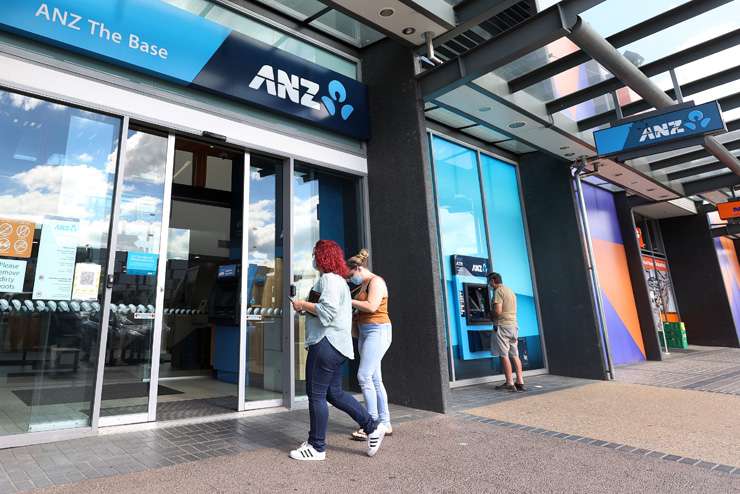Have mortgage rates peaked? Or could there be further to go? It’s a question that no-one can answer for sure, but homeowners need to be thinking about their mortgage strategy, say economists and mortgage advisers.
Economists are mostly predicting that mortgage rates have peaked and won’t go higher. That doesn’t mean that current borrowers whose loans are rolling off fixed periods won’t pay more. If they fixed on rates lower than those available now, their payments will still increase when their mortgages roll over.
The question for homeowners now is what strategy to take with their mortgages when their rates next come up for renewal? Should they fix or float? And if they fix, for how long?
Mortgage rates are influenced by the Reserve Bank of New Zealand’s official cash rate (OCR). However, economic conditions, inflation, global financial markets and competition between banks to get business can also affect the mortgage interest rates offered to consumers.
Start your property search
Like many, CoreLogic’s chief economist Kelvin Davidson thinks mortgage rate increases are “probably done” although there are still some upside risks. “I think we must be very close to the end [of rises],” says Davidson.
“It's not just about the OCR,” he says. “If we saw continuing inflation concerns overseas and maybe offshore wholesale rates go up a bit more, ultimately [the banks] might have to pass that on to borrowers.
“But it’s so competitive here in the banking sector, that banks would want to keep rates as low as possible. Also, new lending activity is pretty quiet because people aren't really moving. That makes banks even more competitive.”
According to Canstar, interest rates on June 16 were as follows: 8.44% for floating; 7.08% for one-year fixed; 6.69% for two-year fixed; 6.47% for three-year fixed; 6.58% for four-year fixed; and 6.55% for five-year fixed.
BNZ chief economist Mike Jones wrote in BNZ’s latest Property Pulse report that getting a mortgage strategy “right” was more about ensuring it suited a borrower’s individual financial needs and requirements for certainty, rather than trying to pick where mortgage rates were headed. “The latter is fraught with difficulty,” he wrote.
The choice, wrote Jones, was between:
● Fixing for a shorter term at slightly higher rates, effectively ‘buying’ the potential to roll onto lower mortgage rates in future should they transpire, and
● Fix for a longer time period such as three years to get extra certainty and lower mortgage payments now, but potentially missing out on the opportunity of switching to lower short term rates in the meantime should they fall.
Borrowers have been choosing shorter fixed rate mortgage periods increasingly in recent months, wrote Jones.
Read more:
- Experts on how much house prices will rise now they’ve hit the bottom
- What NZ can learn from the Aussie house price revival
- How much money do mum and dad property investors lose every week?
Independent economist Tony Alexander recommends borrowers fix for 12 to 18 months currently. “If I were borrowing at the moment, I wouldn't be floating because I'd be paying 8%-plus, whereas I could fix the likes of one year just below 7%. I’d only choose floating if I thought that [the OCR] was about to be eased a lot and very soon. No one thinks that. Best guess at the moment is the middle of next year for that. I’d be fixing one year to 18 months.”
Alexander believes the housing market has bottomed out and will rise 3-5% this year, 10% or more in 2024 and the same in 2025. “I don't think [house prices] are going to rise all that much this year. Maybe 3 to 5%,” he says.
“Next year will be really interesting. I think prices will rise by 10% or more, because of falling interest rates, accelerating population growth, and falling new house construction. And the kicker is that there is a queue of people who have been hanging off buying a property since early 2021. At some point they go ‘yeah’ and they step forward.”
Mortgage adviser Gareth Veale, of EasyStreet Mortgages, says some clients are taking punts on six-month fixed rates.
“The economists are saying that interest rates might not change that much over the next 12 months. Then they might start to decrease,” says Veale. “But some of the banks are offering six-month rates that are quite similar to the one-year rates.” If mortgage rates have dropped in the meantime, clients can move onto the new lower rates. “If mortgage rates are the same at the end of the six months, there is nothing lost.”
He adds that some banks are offering competitive deals that are not advertised publicly. He says while the ASB is offering 6.99% for one-year fixed, BNZ has a rate of 6.59%, which is not advertised. “There are substantial discounts on the advertised rates between the banks. Some banks are holding quite fast, whereas BNZ and ANZ especially are discounting their rates.”

Kiwibank chief economist Jarrod Kerr: “If the economy develops in a way we expect, then the RBNZ will start easing early next year.” Photo / Fiona Goodall

ANZ is said to be discounting its advertised rates. Photo / Fiona Goodall
Bank economists have plenty of views as to where mortgage interest rates are headed. Kiwibank economists say that many commentators are calling for more OCR hikes due to unexpectedly high net migration numbers and government spending. “It is a risk, nonetheless, and deserves consideration,” they say.
Most likely interest rates will fall from here, Kiwibank chief economist Jarrod Kerr says. “If the economy develops in a way we expect, then the RBNZ will start easing early next year. Offered rates could fall from today’s 6-7% range, back into the 5-6% range this time next year, with further downward moves into 2025.”
In ASB’s Home Loan Rate Report, the bank’s economists say it’s prudent to continue to budget for high mortgage rates.
“While ASB economists expect the OCR has peaked, we cannot rule out further increases from the RBNZ,” ASB senior economist Chris Tennent-Brown wrote.
Last year, longer term mortgage interest rates were reduced in August, but had to be put back up in October, he added. “We saw a similar reduction in longer term rates in August last year, which was then reversed in late October. Last year’s moves make us reluctant to call the top just yet.”
He says floating and short-term fixed rates tend to suit those who prefer the ability to review their mortgage structures frequently or those who are due to pay off debt shortly. “As fixed terms get longer, they are typically preferred for their interest rate certainty, but have historically carried a higher interest rate.”
Tennent-Brown's final thought for borrowers is that the “best” mortgage rate is only known in hindsight and is also highly personal. “On top of trying to minimise your interest payments, a good mortgage strategy also needs to consider your personal cash flows, tolerance for uncertainty, and your ability to deal with changes in future mortgage payments as interest rates change.”
Use the mortgage rate table below to find out the best mortgage deals available today.


















































































